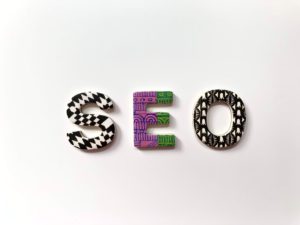Table of Contents
Seo a website on google
Do you want to learn how to SEO a website on Google? All internet marketers and that have become successful have done so by learning and accumulating strategies and techniques that help a major search engine like Google understand what their site is about.
Search engines were created by humans, but they don’t have a human touch, they have sophisticated algorithms, so you need to make your website intelligible for search robots and humans alike.
 What does SEO mean?
What does SEO mean?
SEO or search engine optimization helps the robots figure out what a post or page is all about, not only that search engines can find out whether the post or page is useful to real people.
How important is it to be on the first page of the search results?
If you want to capitalize on a high search presence on Google and monetize the traffic that it will bring then it is imperative that your website ranks as high as possible.
That boils down to having a structured SEO strategy in place.
I find that many webmasters are unsure of how to rank a new website on Google, so if you want to SEO a website on Google then this is where you find out how.
Search engine optimization
SEO isn’t that complicated so let’s look at both types of SEO, on page SEO & off page SEO.
What is on page SEO?
On page SEO is a method of optimizing each individual page so that it obtains a higher ranking and, in the process, gains more organic traffic, let’s look at how to SEO a web page:
1. Your target keyword must be in the title
Spend time playing around with keywords relevant to your website because keywords can make or break a site, by using the best keywords will channel a massive amount of traffic to your site. On the other hand, a badly chosen keyword will have the opposite effect and that page will never be seen.
The title of a post actually tells the reader an awful lot about the content, so a good keyword title holds more sway with Google and other search engines, a good tip is to include the keyword at the start of the title tag, that’s the bit of text that people see when before they click on your website link.
This is the keyword tool that I use to find those sometimes elusive keywords.

2. Put your keyword in the first 10 lines
Ideally you should put your keyword written in a natural way within the first 10 lines of content, I have seen so many lines of content written before the keyword is inserted.
This isn’t good practice because Google won’t know what the page is about.
For example, as you can see in this article, I have used the keyword SEO a website on Google four times already once in the headline and three times in the content, as this point Google should know exactly what my page is about.
3. Outbound Links are important
Outbound links are links to other authority websites, they are a primary element in bringing more search engine attention to your website, a lot of internet marketers forget to include outbound links at the bottom of their posts.
Google looks at all links on a website, the more high-quality links that you have means the higher you will rank, add maybe 5-6 relevant links to each post and boost your search engine rankings.
4.The meta description
The meta description is a shortened version of what your article is all about, spend time writing the meta description, ultimately the meta description will make the visitor decide whether to click and read or to go somewhere else.
Think about a meta description as a teaser, just enough information to spike a person’s curiosity and a teaser to make them want to read more. Read meta descriptions on sites that are on the first page of the search results, you will see what I mean.
5.Insert your chosen keyword in the URL
Keywords are the juice of the website orange, if I can put it like that, pay close attention to keywords and always include your keyword in the URL, Google will pick up on this keyword in the URL as well as in the actual content and your article will be ranked according to that particular keyword as relevant.
6.Add your keywords strategicallyy
Adding your keywords strategically throughout your content should be paramount in your on-page SEO strategy, use the advice given above, don’t put keywords on every line or every second line, Google will penalize your site and your ranking will suffer.
7.Write long content
You need to mix the length of your content in terms of word count, the best advice is that Google likes longer content because no matter what the subject it can’t be explained in under 1,000 words.
You should set yourself a limit of 2,000 words per article but not less than 1,000 words, the longer the content the better because it will get picked up by people typing in long-tail keywords.
Google also believes that an article is more authentic because there is more information in it, so the search engines will add more weight to a longer and more informative article thus improving rankings.
An article with less than 1,000 words may not be ranked however I have gotten to the top spot on Google with around 500 words.
Research your chosen keyword and every bit of information that you can find on that subject, as you write bring the information that you have gathered into the article in a natural way so people will understand what you are trying to say.
Always use good grammar and always spell check before publishing.
8. Internal links
Internal links are crucial to keeping your websites bounce rate down as well as optimizing all your pages. By adding links to other pages on your site within your content keeps the website visitor on the site for longer and improves the user experience.
The bounce rate measurement is measured by how many people read only one page on the site or leave after reading one page, so it makes complete sense to create links within each article to other relevant pages on your site that people may not visit that often.
I recommend that you add anywhere between two to four internal links to other pages on your site, you don’t need to overdo it.
9. Optimize images
All images and pictures on your site should have a name file with the target keyword in it, you should also include the target keyword in the image alt text. This has the effect of optimizing the article thus making the article clearer for the search engines to rank, not only that but well-placed images or pictures make the website experience more enjoyable for the reader and boost the rankings.
.
10. Go for long-tail keywords
A conventional keyword could be just one word for example, “SEO” whereas a long tail keyword based around that keyword could be “find out more about SEO” do you see the difference?
Use your keyword tool to find more long-tail keywords, they may get less website traffic, but they will convert better than the one-word keyword.
Using my example of the one-word keyword “SEO” I typed that word into Google and as you can see many more long-tail keywords there are:
What is the SEO in marketing? What is SEO and how it works? Do SEO by yourself? How do you do SEO for a website?
I hope this example gives you food for thought, always think outside the box when it comes to keywords, will your site get ranked for all your keywords? Unlikely but so long as you use SEO on all your articles you give your site the best chance of a high ranking.
11. Be sure that your site is lighting fast
A lighting fast website means a much better user experience and better for rankings however a slow loading site will damage your chances of higher rankings. So, what can you do to speed up your site?
First you need to establish the speed of your site by using Google page speed insights my website is in the middle performance for mobile usage even though I have done SEO on all pages. I’m happy enough with the score, it loads within 3 seconds and is mobile friendly.
I have listened to a lot of advice on how to speed up my website, one recurring theme is plug-ins and how they can make your site slower, so I recommend that you take a look at all of the active plug-ins on your site,be critical and delete any that aren’t of benefit to your site.
Do regular reviews of your plug-ins and aim to use alternatives such as ad links to your page footer.
WordPress is one of the most popular ways to build a website however some plug-ins are not updated and could be responsible for slowing down a site and security issues.
Always clear the cache so that your website visitor is seeing the latest version.

12. Websites must be mobile friendly
In recent times more and more people are using their mobile phones to access website content as well as other functions, so it goes without saying that a website must be mobile friendly. Websites must be easily display on a smart phone just as well as on a tablet or a desktop computer.
In other words the user shouldn’t have to use their fingers a lot to stretch the page to read the content or to look at images.
Google recommends a fluid responsive design so you may have to play around with your website theme until you find a theme that works across all devices. Responsive design simply means a website design that automatically fits the width of the screen of the device that it is being viewed on.
13. LSI keywords
LSI or latent semantic index is another phrase or word that means the same as your keyword but written in a different way, confusing?
Ok for example you want to write about a keyword like SEO techniques but you want to cover more variations on the keyword, so you write “ learn about SEO techniques ” or how to learn about SEO techniques ” or “what is the best SEO technique practice” I hope this clears up LSI keywords up for you.
14. Build backlinks
According to many SEO experts’ backlinks just aren’t as important as they once were, in other words Google doesn’t place as much emphasis on them for ranking purposes as they used to. However, you should have other high-ranking sites with your link pointing back to your site.
How do you achieve this? Check this link building strategy that my friend Carson wrote in 2011 it’s still relevant.
15. Off-page SEO
This is the type of work that will get you more backlinks to your site and improve rankings, in today’s world we have social media, it seems to be taking over the world so by utilizing social media you will get more exposure for your website.
Creating a social media account is straightforward if you already have an account then you need to go to my special training on off-page SEO using social media.
Thanks for this great article! I’ve been writing articles and optimizing them for almost six years now but I feel like there’s always something new to learn. I knew that outbound links were valuable in terms of SEO, but I didn’t know to shoot for at least five or six links per article. Does this suggestion depend on the length of the article at all? For example, would you include more links in a 3,000+ word article versus a quick 1,000 word product review?
Hi Tucker,
Thanks for your comments, of course the more words in your content the better, always add a minimum 6 internal links and more if you write up to 3,000 words.
Fintan
Thank you very much for your detailed sharing! In this year I have been learning what is SEO and trying to be more attractive by using SEO. As a matter of fact I was handling keywords and SEO during in my current job in order to attract more users to view the website. Now I am achieving the know-how of using SEO well. Such as creating complex title, high quality content, several related links, etc… I learned a lot about SEO via WA and Youtube course indeed.
Hi Yukki,
Thanks for visiting, glad you enjoyed reading the article.
Fintan
I cannot stress hove important this information is for all of us web developers out there. Without proper SEO = no traffick and no money. You summarise it all nicely on this page, I wonder how long time it would take to go through all these steps with a website. Is it more important to buy the domain name first and then SEO that or should I just build the website first and then do the SEO, that wuld be buy the domain afterwards…I hope this page will clarify this for me…Also, I hope I can do this without higher technical skills. It is nice to know that there are people out there trying to help us newbies with this.
Hi Bernie,
Thank you for asking those questions, my recommendation is that as you write your content use the SEO strategies outlined in the post for a more effective SEO strategy.
Fintan
Thanks a lot for this great post you have written, some months back when I was new to online business I do see a lot of posts that ain’t useful for me but I don’t know how to do with them because they were too much, I was introduced to the Seo, and ever since then I got the details of each post I see and which ones are really useful for me thanks a lot for this post
Hi Rose,
I’m glad that you have an understanding of how SEO works.
Fintan
Hey, I have reading your article it is really helpful for me because From Ideas to this article I can easily learn affiliate marketing by myself at Home.I have a WordPress website creating new by my company name but the problem is I can’t do that SEO and Affiliate marketing.Well I known something from your article but i want to know more about SEO from you.Please tell me how can i join your community?
Thanks again to share this.
Hi Saithi,
Simply do the training
Fintsn